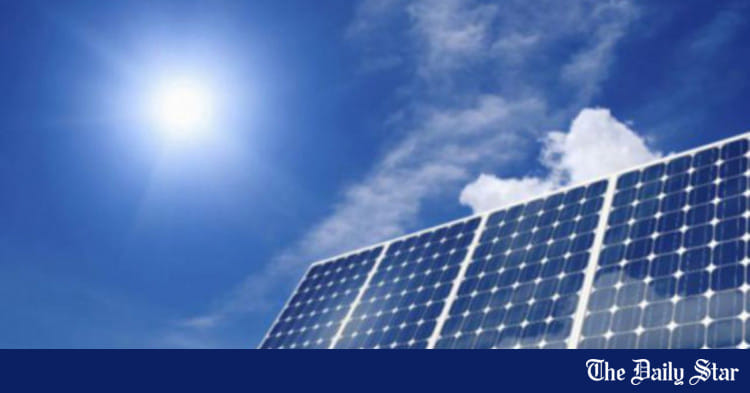Saif
Senior Member
- Joined
- Jan 24, 2024
- Messages
- 16,880
- Likes
- 8,153
- Nation

- Residence

- Axis Group


Offshore gas exploration fails to attract foreign firms
Seven global oil and gas companies purchased tender documents for gas exploration in the Bay of Bengal, but none submitted the papers within the deadline, which ended yesterday.
Offshore gas exploration fails to attract foreign firms
Seven purchased tender documents, but ultimately none showed up

Seven global oil and gas companies purchased tender documents for gas exploration in the Bay of Bengal, but none submitted the papers within the deadline, which ended yesterday.
The deadline was initially set for September 9 before being extended by a month. Yet, no company turned up with the documents.
Petrobangla Chairman Zanendra Nath Sarker confirmed the matter to The Daily Star.
At the same time, two other companies did not buy tender documents but purchased seismic survey data, information that indicates the potential for gas and oil exploration in an area, he said.
Gas exploration in the Bay of Bengal was also a long-discussed topic during the previous government's 15-year tenure.
Insiders say the past government was reluctant about exploration, instead focusing on importing high-cost liquified natural gas (LNG).
On March 10 this year, Petrobangla floated the tender, inviting international oil companies to explore Bangladesh's maritime area -- the first major initiative to exploit the natural resources from the sea after maritime border disputes were settled with India in 2012 and with Myanmar in 2014.
The tender process was opened for nine out of the 11 blocks of the shallow sea and all 15 deep sea blocks.
Only foreign companies with experience in offshore daily production of at least 15,000 barrels of oil or 150 million cubic feet of gas a day (mmcfd) were allowed to participate.
The model "production sharing contract" (PSC) attached to the new tender was made more attractive than previous contracts, allowing international companies to a greater share of profits.
This time, the gas price -- which used to be fixed in the past -- was set at 10 percent of the present price of Brent Crude, an international benchmark for oil prices.
Other attractive features of the tender include full repatriation of profits, no signature bonus or royalty, and determination of oil prices based on the fair market value prevailing in South and South East Asia.
In 2019, Petrobangla finalised a PSC but did not float the tender, citing a lack of interest from global companies.
This time, before floating the tender notice, the government conducted a two-dimensional multi-client seismic survey, the absence of which was also blamed for the lack of interest on the part of foreign companies during previous attempts.
Prof Badrul Imam, a renowned geologist, was surprised after hearing the news.
"I don't know if there was any weakness in our campaigning or if there is any lack in promotional packages or the advertising process," he said, adding that the Bay of Bengal is a "textbook example" of a region with huge gas resources.
Petrobangla Chairman Sarker said the state-owned energy company needs to analyse why the companies purchased the tender documents but did not submit any papers.
Petrobangla needs to sit with the companies in official and unofficial discussions, he said.
"We will find out the gaps in the process, discuss those with the government high-ups and then re-evaluate the tender documents," Sarker added.
Seven purchased tender documents, but ultimately none showed up
Seven global oil and gas companies purchased tender documents for gas exploration in the Bay of Bengal, but none submitted the papers within the deadline, which ended yesterday.
The deadline was initially set for September 9 before being extended by a month. Yet, no company turned up with the documents.
Petrobangla Chairman Zanendra Nath Sarker confirmed the matter to The Daily Star.
At the same time, two other companies did not buy tender documents but purchased seismic survey data, information that indicates the potential for gas and oil exploration in an area, he said.
Gas exploration in the Bay of Bengal was also a long-discussed topic during the previous government's 15-year tenure.
Insiders say the past government was reluctant about exploration, instead focusing on importing high-cost liquified natural gas (LNG).
On March 10 this year, Petrobangla floated the tender, inviting international oil companies to explore Bangladesh's maritime area -- the first major initiative to exploit the natural resources from the sea after maritime border disputes were settled with India in 2012 and with Myanmar in 2014.
The tender process was opened for nine out of the 11 blocks of the shallow sea and all 15 deep sea blocks.
Only foreign companies with experience in offshore daily production of at least 15,000 barrels of oil or 150 million cubic feet of gas a day (mmcfd) were allowed to participate.
The model "production sharing contract" (PSC) attached to the new tender was made more attractive than previous contracts, allowing international companies to a greater share of profits.
This time, the gas price -- which used to be fixed in the past -- was set at 10 percent of the present price of Brent Crude, an international benchmark for oil prices.
Other attractive features of the tender include full repatriation of profits, no signature bonus or royalty, and determination of oil prices based on the fair market value prevailing in South and South East Asia.
In 2019, Petrobangla finalised a PSC but did not float the tender, citing a lack of interest from global companies.
This time, before floating the tender notice, the government conducted a two-dimensional multi-client seismic survey, the absence of which was also blamed for the lack of interest on the part of foreign companies during previous attempts.
Prof Badrul Imam, a renowned geologist, was surprised after hearing the news.
"I don't know if there was any weakness in our campaigning or if there is any lack in promotional packages or the advertising process," he said, adding that the Bay of Bengal is a "textbook example" of a region with huge gas resources.
Petrobangla Chairman Sarker said the state-owned energy company needs to analyse why the companies purchased the tender documents but did not submit any papers.
Petrobangla needs to sit with the companies in official and unofficial discussions, he said.
"We will find out the gaps in the process, discuss those with the government high-ups and then re-evaluate the tender documents," Sarker added.






